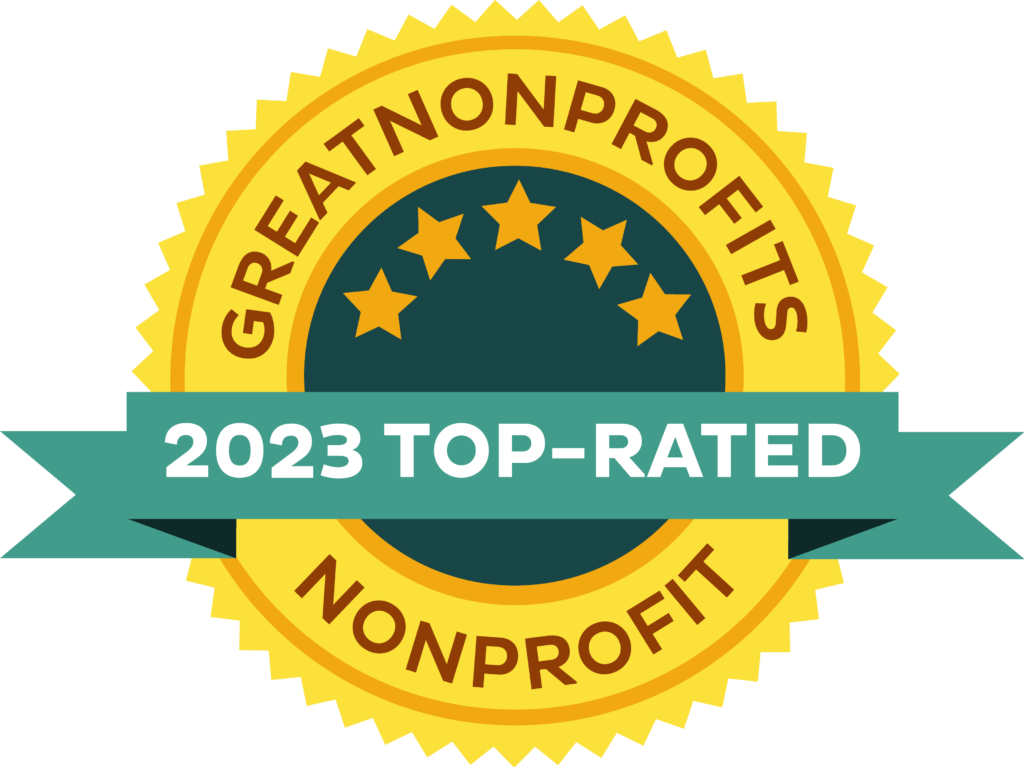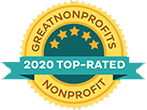OUR PEOPLE
Livestock Conservancy staff work out of a central office, but they are connected with breeders, members, and partners around the world. The Livestock Conservancy’s central office staff members help to develop projects, produce marketing materials, connect breeders, facilitate research, and more, but it is our in-the-field partners who are doing hands-on conservation that allow us to expand our reach. The Livestock Conservancy staff members also travel around the country to conduct workshops, spread the word about heritage breeds, and assist with research and field-work.
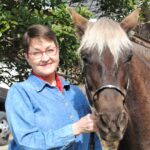
Judy Brummer is the Interim Executive Director for The Livestock Conservancy. Judy grew up on a family farm in Southern Illinois where cattle, hogs, horses, and grain crops were raised. She and her three sisters were involved in every aspect of working and managing the farm with their parents. Judy has always had an interest in health care and an unquenchable thirst for education. She acquired two associate degrees, a bachelor’s and a master’s degree in nursing as her first career choice – and later became a physician. When she met and married her husband, who is also a physician and also grew up on a family farm, they worked together toward their shared dream of returning to farming. They now live on a small farm in Central Illinois, where they raise Rocky Mountain Horses and Braunvieh cattle. Judy has been involved in the Rocky Mountain Horse Association (RMHA) for more than 10 years. She has served on several committees, as a Director of Examiners, and as President for 6 years. Judy was also so pleased to be a part of an Appalachian oral history project, recording the early history of the Rocky Mountain Horse breed before the Registry was created. She also assisted in the establishment of the Rocky Mountain Horse Foundation and became a member of their board. Judy has traveled across the United States and overseas as a representative of the RMHA and the Rocky Mountain Horse, and was inducted into the Charles Kilburn Society, an honorary society recognizing individuals who have made a significant contribution to the RMHA and the Rocky Mountain Horse breed.
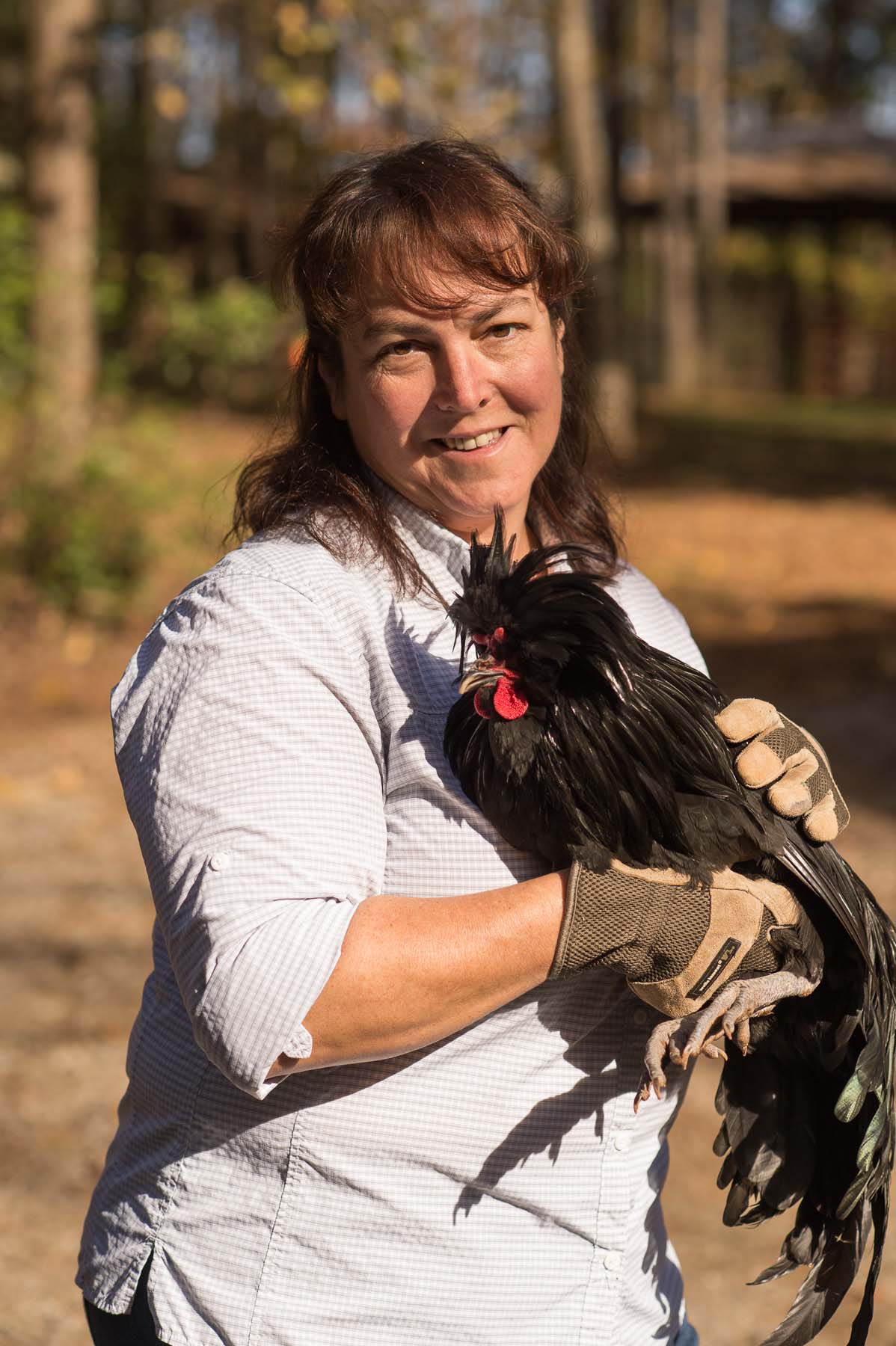 Jeannette Beranger a the Senior Program Manager for the Conservancy. She came to the organization with 25 years’ experience working as an animal professional, including veterinary and zoological institutions with a focus on Heritage breeds. She has been with the Conservancy since 2005 and uses her knowledge to plan and implement conservation programs, conduct field research, and advise farmers in their endeavors with rare breeds. She is co-author of the best-selling book An Introduction to Heritage Breeds. At home she maintains a Heritage breeds farm with a focus on rare breed chickens. In 2015 she was honored as one of the top “45 Amazing Country Women in America” by Country Woman magazine for her long standing dedication to endangered breed conservation.
Jeannette Beranger a the Senior Program Manager for the Conservancy. She came to the organization with 25 years’ experience working as an animal professional, including veterinary and zoological institutions with a focus on Heritage breeds. She has been with the Conservancy since 2005 and uses her knowledge to plan and implement conservation programs, conduct field research, and advise farmers in their endeavors with rare breeds. She is co-author of the best-selling book An Introduction to Heritage Breeds. At home she maintains a Heritage breeds farm with a focus on rare breed chickens. In 2015 she was honored as one of the top “45 Amazing Country Women in America” by Country Woman magazine for her long standing dedication to endangered breed conservation.
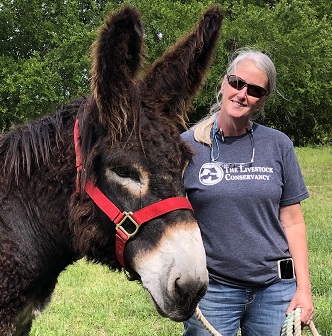 Charlene Couch, Ph.D. is a Senior Program Manager for the Conservancy. She grew up on a small farm in western North Carolina with horses, beef cattle, goats, and chickens. Her doctoral degree is in Zoology with a biotechnology minor. Charlene has a keen interest in conservation of genetic diversity in livestock. She currently keeps horses and Dominique chickens.
Charlene Couch, Ph.D. is a Senior Program Manager for the Conservancy. She grew up on a small farm in western North Carolina with horses, beef cattle, goats, and chickens. Her doctoral degree is in Zoology with a biotechnology minor. Charlene has a keen interest in conservation of genetic diversity in livestock. She currently keeps horses and Dominique chickens.
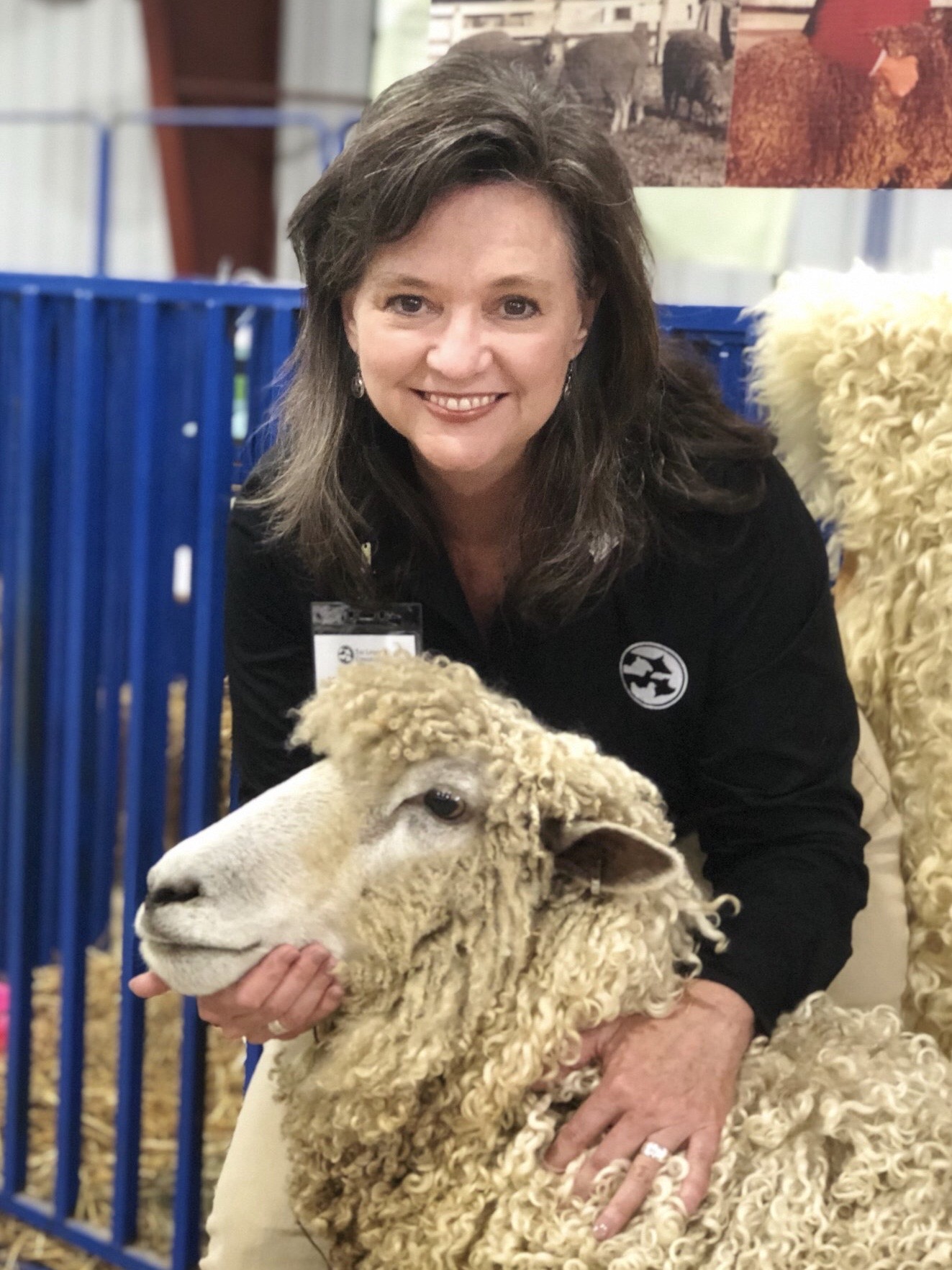 Karena Elliott is the Development Director for the Conservancy. She was raised on a cow/calf farm in western Kentucky and has a long history of supporting agriculture. She has raised funds for colleges of agriculture throughout the United States and is also a freelance writer telling the stories of the American farming and ranching industry. You can read some of her work at www.KarenaElliott.com. Karena holds a bachelor’s degree in animal sciences and a master’s degree in education. She has worked with horses, swine, poultry, and rabbits and even met her husband, a dairy animal nutritionist, in a sheep science class. Karena is working to help The Livestock Conservancy expand our mission to save Heritage Breeds. You can email her at kelliott@livestockconservancy.org.
Karena Elliott is the Development Director for the Conservancy. She was raised on a cow/calf farm in western Kentucky and has a long history of supporting agriculture. She has raised funds for colleges of agriculture throughout the United States and is also a freelance writer telling the stories of the American farming and ranching industry. You can read some of her work at www.KarenaElliott.com. Karena holds a bachelor’s degree in animal sciences and a master’s degree in education. She has worked with horses, swine, poultry, and rabbits and even met her husband, a dairy animal nutritionist, in a sheep science class. Karena is working to help The Livestock Conservancy expand our mission to save Heritage Breeds. You can email her at kelliott@livestockconservancy.org.
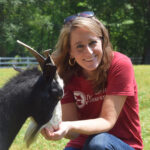 Wendy Jennings serves as the Conservancy’s Administrative Assistant working to support the Executive Director, Operations Director and more than 20 volunteer members of our board of directors across America. If you phone our Pittsboro office, Wendy is likely to answer your call. She also maintains our member database, tracking almost 30,000 heritage breed enthusiasts, their memberships, charitable gifts, and the heritage breeds raised by hardworking farmers, ranchers, and shepherds.
Wendy Jennings serves as the Conservancy’s Administrative Assistant working to support the Executive Director, Operations Director and more than 20 volunteer members of our board of directors across America. If you phone our Pittsboro office, Wendy is likely to answer your call. She also maintains our member database, tracking almost 30,000 heritage breed enthusiasts, their memberships, charitable gifts, and the heritage breeds raised by hardworking farmers, ranchers, and shepherds.
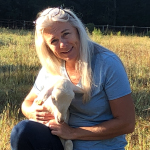 Cindra Kerscher, Program Manager for The Livestock Conservancy, was raised in a rural Pennsylvania farming community and fully appreciates family farmers. She studied sustainable agriculture and worked on a diversified meat and dairy farm providing daily care for chickens, turkeys, hogs, sheep, goats, and dairy cattle. Cindra manages The Livestock Conservancy’s Shave ‘Em to Save ‘Em Initiative, co-coordinates the Cultivating Leadership for Breed Associations program, and serves as staff advisor to collegiate Heritage Breeds Clubs. Cindra is also a trained mediator and enjoys guiding breed organizations through difficult conversations and transitions. When she is not working, Cindra enjoys gardening, hunting, hiking, and kayaking.
Cindra Kerscher, Program Manager for The Livestock Conservancy, was raised in a rural Pennsylvania farming community and fully appreciates family farmers. She studied sustainable agriculture and worked on a diversified meat and dairy farm providing daily care for chickens, turkeys, hogs, sheep, goats, and dairy cattle. Cindra manages The Livestock Conservancy’s Shave ‘Em to Save ‘Em Initiative, co-coordinates the Cultivating Leadership for Breed Associations program, and serves as staff advisor to collegiate Heritage Breeds Clubs. Cindra is also a trained mediator and enjoys guiding breed organizations through difficult conversations and transitions. When she is not working, Cindra enjoys gardening, hunting, hiking, and kayaking.
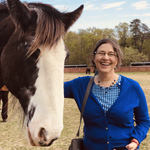 Alison Martin, Ph.D. is The Livestock Conservancy’s Program Director. As a teenager, Alison raised backyard poultry, waterfowl, rabbits and horses. This early experience led to a career of more than 20 years in poultry science, specializing in health and vaccine development. She was a key leader on the world’s first in ovo (in the egg) vaccine for coccidiosis. Alison has a PhD in Genetics from Virginia Polytechnic Institute and State University in Blacksburg, Virginia, where she specialized in disease resistance in poultry. Alison’s skills in building collaborative partnerships have helped The Livestock Conservancy to expand its strategic scientific and technical capacity in conservation programs.
Alison Martin, Ph.D. is The Livestock Conservancy’s Program Director. As a teenager, Alison raised backyard poultry, waterfowl, rabbits and horses. This early experience led to a career of more than 20 years in poultry science, specializing in health and vaccine development. She was a key leader on the world’s first in ovo (in the egg) vaccine for coccidiosis. Alison has a PhD in Genetics from Virginia Polytechnic Institute and State University in Blacksburg, Virginia, where she specialized in disease resistance in poultry. Alison’s skills in building collaborative partnerships have helped The Livestock Conservancy to expand its strategic scientific and technical capacity in conservation programs.
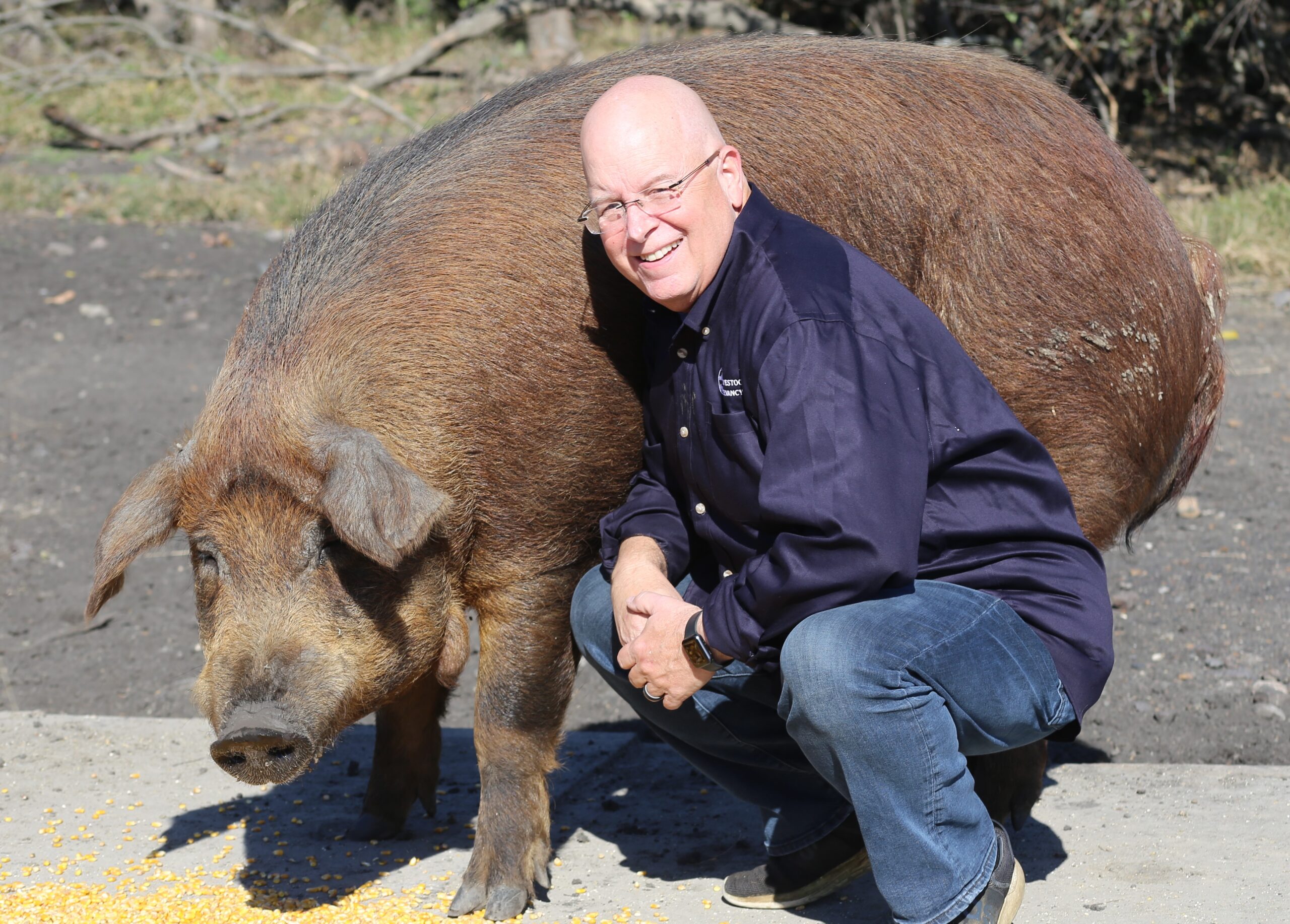 Les O’Dell serves as Communications Manager for The Livestock Conservancy, responsible for the organization’s promotion and marketing, public and media relations as well as the Conservancy’s website, its publications and social media efforts. His experiences on the family grain farm in south central Illinois led him to pursue both bachelor’s and master’s degrees in agricultural communications at Southern Illinois University Carbondale (SIU), where he also earned an additional bachelor’s degree in journalism. Les brings a diverse communications and non-profit background to the organization, including experience as a daily newspaper reporter and columnist, freelance journalist, not-for-profit leader and pastor. Email Les at lodell@livestockconservancy.
Les O’Dell serves as Communications Manager for The Livestock Conservancy, responsible for the organization’s promotion and marketing, public and media relations as well as the Conservancy’s website, its publications and social media efforts. His experiences on the family grain farm in south central Illinois led him to pursue both bachelor’s and master’s degrees in agricultural communications at Southern Illinois University Carbondale (SIU), where he also earned an additional bachelor’s degree in journalism. Les brings a diverse communications and non-profit background to the organization, including experience as a daily newspaper reporter and columnist, freelance journalist, not-for-profit leader and pastor. Email Les at lodell@livestockconservancy.
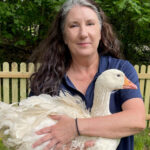 Jaye Ray serves as the Program’s Assistant working to support The Livestock Conservancy’s Senior Program Managers and Programs Coordinator. Jaye serves as the registrar for heritage breed associations and studbooks managed by the Conservancy. She’s our Grassroots software expert and works directly with breed association volunteers to provide accurate Registration Services. Jaye has an extensive background in data management and administration. She enjoys learning about different cultures through cooking and music.
Jaye Ray serves as the Program’s Assistant working to support The Livestock Conservancy’s Senior Program Managers and Programs Coordinator. Jaye serves as the registrar for heritage breed associations and studbooks managed by the Conservancy. She’s our Grassroots software expert and works directly with breed association volunteers to provide accurate Registration Services. Jaye has an extensive background in data management and administration. She enjoys learning about different cultures through cooking and music.
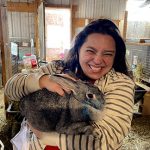 Jeanne Serrette is the Development Assistant for The Livestock Conservancy, aiding in fundraising and growth to support the central mission of the organization. Jeanne manages membership renewal communications and advertising for both the quarterly Newsletter and the annual Directory. She comes to the Conservancy with a background as wide as her knowledge base, having been a high school English teacher, a librarian, a technical writer, and most recently a social media coordinator and webmaster. Her dream is to continue building her micro-hobby-garden-farm so she can provide sustainable food sources for her family and their pack of mismatched critters.
Jeanne Serrette is the Development Assistant for The Livestock Conservancy, aiding in fundraising and growth to support the central mission of the organization. Jeanne manages membership renewal communications and advertising for both the quarterly Newsletter and the annual Directory. She comes to the Conservancy with a background as wide as her knowledge base, having been a high school English teacher, a librarian, a technical writer, and most recently a social media coordinator and webmaster. Her dream is to continue building her micro-hobby-garden-farm so she can provide sustainable food sources for her family and their pack of mismatched critters.
 Science and Technical Advisor, D. Phillip Sponenberg, DVM, PhD. has served as Advisor to The Livestock Conservancy since 1978, providing counsel and mentoring to Conservancy staff, breeders, breed associations, scholars, and NGO partners. He established both the Conservation Priority List and the standards for rare breed inclusion on that List. Because of the quality and originality of his approach to conservation, Phil’s expertise is internationally renowned. He is the author of several books on color genetics and conservation, and is a sought after speaker domestically and abroad. Phil is Professor of Pathology and Genetics at Virginia Tech. On his own farm, he is a conservation breeder of Tennessee Fainting goats, and enjoys playing with color genetics in his Brahma chickens.
Science and Technical Advisor, D. Phillip Sponenberg, DVM, PhD. has served as Advisor to The Livestock Conservancy since 1978, providing counsel and mentoring to Conservancy staff, breeders, breed associations, scholars, and NGO partners. He established both the Conservation Priority List and the standards for rare breed inclusion on that List. Because of the quality and originality of his approach to conservation, Phil’s expertise is internationally renowned. He is the author of several books on color genetics and conservation, and is a sought after speaker domestically and abroad. Phil is Professor of Pathology and Genetics at Virginia Tech. On his own farm, he is a conservation breeder of Tennessee Fainting goats, and enjoys playing with color genetics in his Brahma chickens.
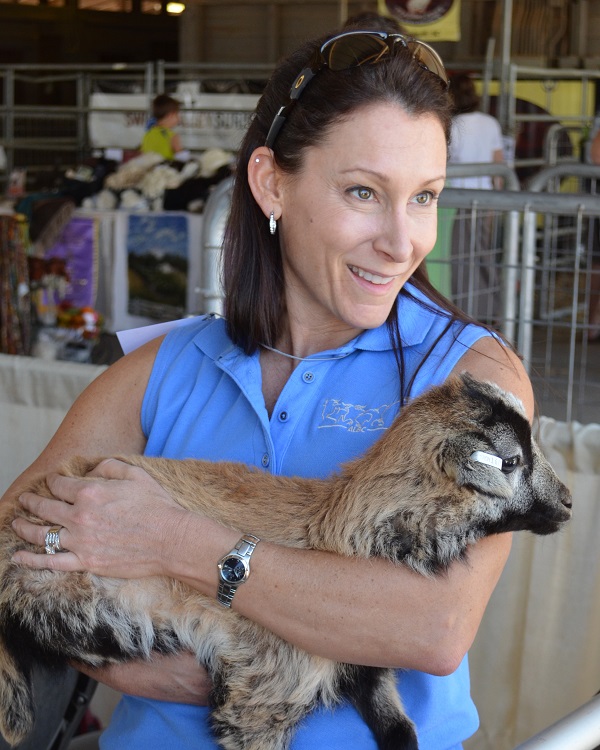 Angelique Thompson serves as the Conservancy’s Senior Operations Director. Angelique oversees financial operations, human resources, information technology, systems development, and meeting organization. Angelique also serves as a liaison to the Board in planning and organizing Board meetings. Angelique works directly with the Executive Director and Board to facilitate long-range planning geared towards operational effectiveness and organizational success.
Angelique Thompson serves as the Conservancy’s Senior Operations Director. Angelique oversees financial operations, human resources, information technology, systems development, and meeting organization. Angelique also serves as a liaison to the Board in planning and organizing Board meetings. Angelique works directly with the Executive Director and Board to facilitate long-range planning geared towards operational effectiveness and organizational success.
BOARD OF DIRECTORS
The Livestock Conservancy is governed by a Board of Directors. This Board sets policy and priorities for the organization. Directors are elected by the membership and serve three-year terms. The Conservancy’s current Board of Directors are as follows:
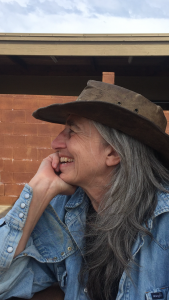 President
President
Patricia (Pat) K. Johnston has wide-ranging experience in the non-profit world, starting four non-profits herself. She serves on the Board of Directors of the Akhal-Teke Association of America, where she steers various preservation projects for this ancient threatened horse breed. In the last two years, Pat and her husband, Kevin Matthews, launched the Akhal-Teke Foundation, an award-winning breed education and preservation public charity. Pat and Kevin also breed Akhal-Teke horses at their ranch in Oregon, Swan Farm. She holds a dual degree in range management and wildlife science and has extensive professional experience in both areas, including wildlife reintroduction projects and threatened and endangered species mitigation. Pat currently works in the Department of Interior, Bureau of Land Management, overseeing landscape-scale native plant community restoration, a native seed collection program, and several collaborative facilitation projects, and she was the principal author of their national Strategic Plan for Collaborative Action and Dispute Resolution.

Vice President
David Day and his wife, Brenda, reside on a small farm outside Noblesville, Indiana. They have three children, seven grandchildren, and an active sheep flock (www.creekroadfarms.com). The flock includes purebred Lincoln Longwool sheep, a breed recognized as threatened by The Livestock Conservancy. David is a senior partner in a central Indiana law firm (www.cchalaw.com). He has been in private practice for almost 46 years, focused primarily in two areas: advising public school districts and assisting small businesses and families in business matters, with an emphasis on succession planning. David has also served as managing partner in his law firm for over ten years. Currently, David is transitioning to a less active law practice and assisting on special projects at the law firm. Over the years, David has provided both legal advice and board service to a number of nonprofit and civic organizations. These have included leadership roles on an elected school board, various livestock organizations including president, treasurer, and board member of the Indiana Sheep Association, board member of two national sheep breed organizations, and a board member of The Livestock Conservancy and Conner Prairie history museum, www.connerprairie.org. David is a native of Indiana and holds a bachelor’s degree from Ball State University and a law degree from Harvard Law School.
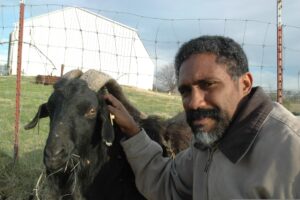 Recording Secretary
Recording Secretary
Richard Browning, Ph.D. is a Professor of Animal Science, Tennessee State University, Nashville. He grew up in Raywood, Texas where he was active in the Hull-Daisetta FFA and Liberty County 4-H through the raising and showing of Red Brahman cattle. He earned a B.Sc. (1989) from Prairie View A&M University and M.Sc. (1992) and Ph.D. (1994) from Texas A&M University. Dr. Browning’s graduate research focused on the reproductive performance of Brahman cattle and comparative calf performance of tropically-adapted Tuli cattle along with Angus and Brahman under the senior guidance of Dr. Ron Randel. In 1994, Dr. Browning arrived at Tennessee State University in Nashville. At TSU he studied physiological mechanisms and heat-tolerant cattle genetics in relation to fescue toxicosis using Angus, Brahman, Hereford, Holstein, and Senepol breeds. He started meat goat research in 2002. He is studying performance traits among Boer, Kiko, and Spanish breeds. Myotonic and Savanna goats were added later to the research program. Dr. Browning established a Dexter cattle herd at TSU in 2015. The Dexter cattle will be used to advance student teaching and ruminant research. He is married to Dr. Maria Leite-Browning who is a veterinarian and Extension specialist. The two of them are thoroughly engaged in outreach activities to assist meat goat producers. An overview of his work can be found here.
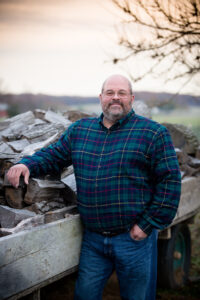 Treasurer
Treasurer
Keith Ohlinger runs Porch View Farm LLC with his family in Howard County, Maryland. Keith set out to continue his family farming legacy by building a Garden of Eden that was profitable and enhanced the ecosystem. They rotationally graze Legacy Irish Dexter Cattle and raise trees on a 22.3-acre silvopasture that uses keylines for water management and living hedges to increase carbon sequestration and wildlife habitat. He found heritage breeds perfect for his farming operation and has raised many types over the years including San Clemente Island Goats, Hog Island Sheep, Gloucestershire Old Spots and Tamworth Hogs, Beltsville Small White Turkeys, Pilgrim Geese, Welsh Harlequin Ducks, Silver Fox and American Chinchilla Rabbits. Keith is a very active advocate for all types of agriculture. He has served and currently serves on many boards, committees, commissions, councils, and task forces helping the agricultural and forest product industries.
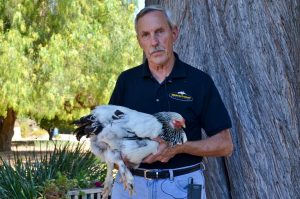 David L. Anderson was born and raised in the farming countryside of southwestern New York state. As an adult he relocated to California where he now resides with his wife Michele. He has been a proactive community leader, including five years of service on the board of the local unified school district and as a member of the local area advisory committee. Dave is a life-long breeder and exhibitor of many standard-bred breeds and varieties of poultry, including large fowl and bantam chickens, turkeys, geese, and ducks. He served six years as president and ten years on the Board of Directors of the American Poultry Association (APA), North America’s oldest livestock organization (established 1873). Dave is a general licensed poultry judge and has judged throughout the continental U.S., Canada and Mexico, plus Hawaii and Alaska. He has served as an expert poultry witness in court on multiple trials in California and has testified before the state legislature concerning poultry matters. He was inducted into the California Poultry Hall of Fame and the APA Hall of Fame in 2006. Dave holds a BA degree in Psychology from Chapman University followed up with advanced studies in Systems Management from the University of Southern California (USC). He is now retired after enjoying a successful career in the aerospace industry and space program. He also served for 30 years as founder and president of Key Group, a management and marketing consultant firm providing support primarily to aerospace-oriented service companies. His list of clients included both privately and publicly owned companies, and ran the gamut from “Mom and Pop” businesses to industry leaders such as Westinghouse, Lockheed-Martin, and Northrop Grumman. Dave also was part owner and officer in various companies, and served on the Board of Directors of two other corporations.
David L. Anderson was born and raised in the farming countryside of southwestern New York state. As an adult he relocated to California where he now resides with his wife Michele. He has been a proactive community leader, including five years of service on the board of the local unified school district and as a member of the local area advisory committee. Dave is a life-long breeder and exhibitor of many standard-bred breeds and varieties of poultry, including large fowl and bantam chickens, turkeys, geese, and ducks. He served six years as president and ten years on the Board of Directors of the American Poultry Association (APA), North America’s oldest livestock organization (established 1873). Dave is a general licensed poultry judge and has judged throughout the continental U.S., Canada and Mexico, plus Hawaii and Alaska. He has served as an expert poultry witness in court on multiple trials in California and has testified before the state legislature concerning poultry matters. He was inducted into the California Poultry Hall of Fame and the APA Hall of Fame in 2006. Dave holds a BA degree in Psychology from Chapman University followed up with advanced studies in Systems Management from the University of Southern California (USC). He is now retired after enjoying a successful career in the aerospace industry and space program. He also served for 30 years as founder and president of Key Group, a management and marketing consultant firm providing support primarily to aerospace-oriented service companies. His list of clients included both privately and publicly owned companies, and ran the gamut from “Mom and Pop” businesses to industry leaders such as Westinghouse, Lockheed-Martin, and Northrop Grumman. Dave also was part owner and officer in various companies, and served on the Board of Directors of two other corporations.
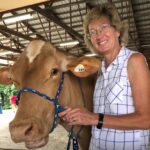
Gloria Basse grew up on a dairy farm where they milked over 100 Guernsey cows in southeast Wisconsin. She is formerly, the V.P. US Pork Business at Zoetis and served marketing, sales, and leadership roles in Animal Health for 30 years. Gloria is a seasoned executive who has a history of successfully leading dynamic organizations to drive performance and a unique ability to lead teams and develop people. It is her keen understanding of business strategy and processes, strength in building teams, and ability to instill dedication to team success that has made her an effective and proven leader. She is currently working with Tonisity International as their Senior Executive Director whose mission is to bring non-antibiotic, disruptive products to the animal health industry and producers worldwide. She is also a Senior Associate at The Context Network, a business management and strategy consulting firm providing services to the world’s leading agriculture, biotechnology and food companies. Gloria holds a Bachelor of Science degree in Animal Science and Agricultural Journalism from the University of Wisconsin-Madison and an MBA in business from William E. Simon Graduate School of Business at the University of Rochester, NY. Recently, Gloria moved out of hustle and bustle of NYC and now enjoys living on her small farm in southwest Virginia.
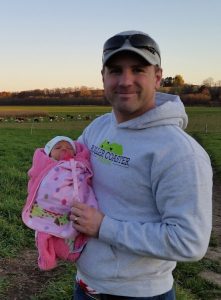
Silas Bernardoni studied Industrial and System Engineering and did his graduate research on the implementation of disruptive technology. His off-farm job is engineer and project manager, working with energy utilities across the country to implement energy efficiency programs. Silas returned to Wisconsin to start a family and apply his professional skills by co-operating Roller Coaster Farm alongside his parents and siblings. Roller Coaster Farm is firmly committed to a holistic approach that exclusively utilizes heritage breeds and combines pre-industrial methodologies with modern technology, research, and a data-driven approaches to management. Silas and his family have been active in The Livestock Conservancy and many national breed associations for as long as he can remember.
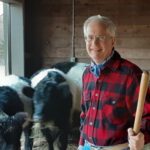
Dennis Bires has had careers as a practicing lawyer and as a law professor, teaching tax and estate planning courses at The University of Tulsa College of Law. He has served as legal and tax counsel for numerous nonprofit organizations, including the Woody Guthrie Center (museum and archive); Bob Dylan Center (museum and archive); Tulsa Community Foundation; Educare Centers (private preschools for children from indigent families); Still She Rises (private defender and social services coordinator for indigent defendants who are mothers); and Center of the Universe Festival (music and art festival). He was the leader of the Docent Program at The Nature Conservancy’s Tallgrass Prairie Preserve; was founding director and professor at the Summer Institute in Slovakia (for-credit law study in Eastern Europe); served as board chair of the Woody Guthrie Center, and advisory board member of Friends of American Song Archives (overseeing Bob Dylan Center and Woody Guthrie Center). Dennis was a presenter at The Livestock Conservancy’s 2014 Annual Meeting in Austin, on “Tax Treatment of Hobby Farms,” and authored the cover story for the summer 2005 issue of The Livestock Conservancy News: “The Milking Shorthorn in American History.” Dennis and his wife Marian raise Galloway and Milking Shorthorn beef for the home freezer.
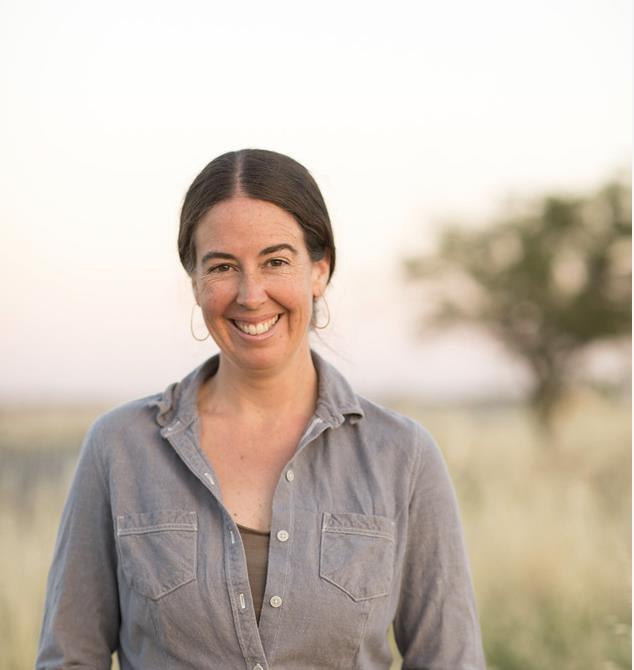 Rebecca Burgess is the Executive Director of Fibershed, a nonprofit organization that develops equity-focused regional and land-regenerating natural fiber and dye systems, and Chair of the Board for Carbon Cycle Institute. She has more than a decade of experience writing and implementing a hands-on curriculum that focuses on the intersection of restoration ecology and fiber systems. She has taught at Westminster College, Harvard University, and created workshops for a range of NGOs and corporations. Rebecca is also the author of the best-selling book Harvesting Color, a bioregional look into the natural dye traditions of North America, and Fibershed: Growing a Movement of Farmers, Fashion Activists, and Makers for a New Textile Economy released in 2019. She continues to facilitate an extensive network of farmers and artisans within the Northern California Fibershed to pilot the regenerative fiber systems model at the community scale.
Rebecca Burgess is the Executive Director of Fibershed, a nonprofit organization that develops equity-focused regional and land-regenerating natural fiber and dye systems, and Chair of the Board for Carbon Cycle Institute. She has more than a decade of experience writing and implementing a hands-on curriculum that focuses on the intersection of restoration ecology and fiber systems. She has taught at Westminster College, Harvard University, and created workshops for a range of NGOs and corporations. Rebecca is also the author of the best-selling book Harvesting Color, a bioregional look into the natural dye traditions of North America, and Fibershed: Growing a Movement of Farmers, Fashion Activists, and Makers for a New Textile Economy released in 2019. She continues to facilitate an extensive network of farmers and artisans within the Northern California Fibershed to pilot the regenerative fiber systems model at the community scale.
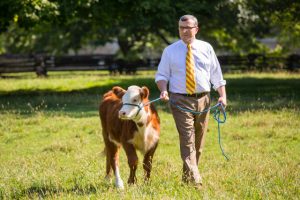 Norman Burns is the President and CEO of Conner Prairie Museum in Fishers, Indiana. The Museum houses a wide collection of heritage breed livestock and is an active breeder of Ossabaw pigs, Tunis sheep, and English Longhorn cattle among others.Burns was raised on a small farm in middle Tennessee where they raised Hereford cattle. He has been actively involved in museum administration and entrepreneurial leadership, fund raising, preservation, conservation, animal husbandry, education, and cultural heritage tourism for more than 34 years. He turned his hand to hand- shearing demonstrations and many other tasks with heritage breeds and heirloom plants at living history museums in Tennessee and Indiana before turning to administration. As the CEO and Executive Director of six different historic properties and general museums, Burns has developed nationally recognized, award-winning, and innovative programming. He has developed visionary strategic, site master, and business plans that have allowed organizations to experience stages of developmental growth in operational income, physical plant, and properties. Norman has also served on various boards, committees, and task forces for local and regional cultural tourism agencies, and has served in a similar capacity for local, state, regional and national museum organizations. He is currently the incoming Chair for the American Association for State and Local History.
Norman Burns is the President and CEO of Conner Prairie Museum in Fishers, Indiana. The Museum houses a wide collection of heritage breed livestock and is an active breeder of Ossabaw pigs, Tunis sheep, and English Longhorn cattle among others.Burns was raised on a small farm in middle Tennessee where they raised Hereford cattle. He has been actively involved in museum administration and entrepreneurial leadership, fund raising, preservation, conservation, animal husbandry, education, and cultural heritage tourism for more than 34 years. He turned his hand to hand- shearing demonstrations and many other tasks with heritage breeds and heirloom plants at living history museums in Tennessee and Indiana before turning to administration. As the CEO and Executive Director of six different historic properties and general museums, Burns has developed nationally recognized, award-winning, and innovative programming. He has developed visionary strategic, site master, and business plans that have allowed organizations to experience stages of developmental growth in operational income, physical plant, and properties. Norman has also served on various boards, committees, and task forces for local and regional cultural tourism agencies, and has served in a similar capacity for local, state, regional and national museum organizations. He is currently the incoming Chair for the American Association for State and Local History.
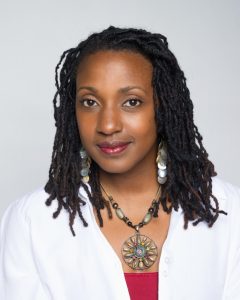 Keisha Cameron was raised in Brockport, New York, a small town just outside of Lake Ontario. Keisha Cameron grew up as the daughter of Southern preachers’ kids who became Northern school teachers. From a young age, she has been passionate about connecting and communicating with people who shape the community and cultures around her, always exploring languages, histories and stories. She pursued a major in Speech Pathology and American Sign Language (ASL) and interpreted at Ashland University, then went on to attend Hampton University on a track and field scholarship until her father’s passing in 1995. Years later, as a lifelong student and working mother of three, Keisha returned to SUNY Empire State College to study Social Theory, Structure and Change, an interdisciplinary program focused on socio-cultural anthropology. Professionally, Keisha spent more than a decade co-managing 5 Acre Studios, a creative brand marketing and photography company owned and operated with her husband Warren. She worked briefly as Community Relations Manager for Barnes and Noble and as a Refugee Employment Specialist with World Relief. These experiences helped Keisha build skills in community engagement, and she frequently dealt with the intersections of intercultural differences, racial inequities, economic security, and individual and community well-being. In 2009, using an anti-racist/anti-othering framework, Keisha founded The Exchange – a multicultural arts and education organization dedicated to promoting belonging through education, hospitality and play. More recently, Keisha worked with the Montgomery Improvement Association, helping commemorate the 50th Anniversary celebration of the famous bus boycott and the start of the Civil Rights Movement. She has also played host to countless international visitors, missionaries, dignitaries, and exchange students.
Keisha Cameron was raised in Brockport, New York, a small town just outside of Lake Ontario. Keisha Cameron grew up as the daughter of Southern preachers’ kids who became Northern school teachers. From a young age, she has been passionate about connecting and communicating with people who shape the community and cultures around her, always exploring languages, histories and stories. She pursued a major in Speech Pathology and American Sign Language (ASL) and interpreted at Ashland University, then went on to attend Hampton University on a track and field scholarship until her father’s passing in 1995. Years later, as a lifelong student and working mother of three, Keisha returned to SUNY Empire State College to study Social Theory, Structure and Change, an interdisciplinary program focused on socio-cultural anthropology. Professionally, Keisha spent more than a decade co-managing 5 Acre Studios, a creative brand marketing and photography company owned and operated with her husband Warren. She worked briefly as Community Relations Manager for Barnes and Noble and as a Refugee Employment Specialist with World Relief. These experiences helped Keisha build skills in community engagement, and she frequently dealt with the intersections of intercultural differences, racial inequities, economic security, and individual and community well-being. In 2009, using an anti-racist/anti-othering framework, Keisha founded The Exchange – a multicultural arts and education organization dedicated to promoting belonging through education, hospitality and play. More recently, Keisha worked with the Montgomery Improvement Association, helping commemorate the 50th Anniversary celebration of the famous bus boycott and the start of the Civil Rights Movement. She has also played host to countless international visitors, missionaries, dignitaries, and exchange students.
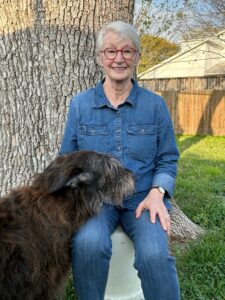
Therese Coucher first read about The Livestock Conservancy, then known as American Rare Breeds Association, in a magazine article about a woman who had imported several Poitou donkeys from France. As a lifelong animal lover, growing up in the western U.S., she was fascinated. The article was about her and her donkeys but mentioned the ARBA and its goal of preserving rare breeds of livestock. Therese joined The Livestock Conservancy as a member in the late 1980s.For many years, Therese bred Komondor dogs and maintained their registry. She also raised Angora rabbits and kept and showed Morgan horses. She now keeps chickens to provide fresh eggs and lives with two Berger Picards, an ancient breed of sheepdog. Therese is also a tapestry weaver, woodworker, artist, Master Gardener, and Master Naturalist. From 2017 to 2022 she worked as a volunteer with The Livestock Conservancy, working to enhance and reorganize the livestock census. She reached out to more than 100 livestock breed associations and registries each year to gather data used to determine changes to the Conservation Priority List. Therese spent several years on this project, and in the end the census now reflects many years’ worth of worldwide data for hundreds of breeds.
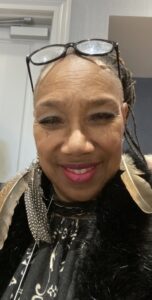
Cynthia Capers, a retired trauma nurse, pharmaceutical biotech clinical researcher, and sorority member of Sigma Gamma Rho, Inc., is the founder/owner of Heniscity Farm in Pegram, TN. Heniscity Farm was created to extend across the ancestral journey to Mother Earth unifying cultural gaps to the land, and reducing hunger along the way. National Poultry Improvement Program (NPIP) certified, Heniscity Farm specializes in heritage breeds and domestic free-range poultry. From the big city of Chicago to now a small-town feathered fowl aficionado, she has over 20 years of experience with poultry. Pastured meat, fresh eggs, canned fruits/vegetables, live birds, and herbal balms are sold via eCommerce, community grocery stores, and on farm. A graduate of TSU’s New Farmers Academy, she is also a member of the American Pastured Poultry Producers Association (APPPA), The Livestock Conservancy, a licensed egg grader, and an industrial hemp grower. As well as developing a small flock poultry curriculum in partnership with TSU, Heniscity Farm was recently honored to be chosen the 1st Livestock Farm certified in TN under the Cumberland River Compact. Cynthia is currently teaming with a United Nations based group to ensure equality in agriculture across the globe. Although new to general farm methods, she is considered the local poultry expert in the Nashville TN area and believes heritage breeds must be on the agricultural radar as entry-level livestock
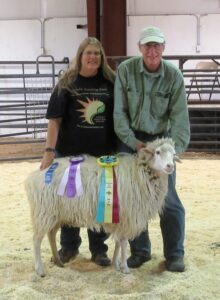 Cindy Dvergsten grew up on small farm in Minnesota and holds a degree in Natural Resource Management from the University of Wisconsin-Stevens Point. In 1986 she and her husband, Mike, established Arriola Sunshine Farm near Cortez, Colorado. Cindy fell in love with the concept of conserving endangered breeds while attending the 1998 Livestock Conservancy (ALBC) conference which was held in conjunction with Dine Be Iina’s “Sheep is Life Celebration” in New Mexico. She started with heritage turkeys and chickens, and in 2004, added Navajo-Churro Sheep. Today she has 30 registered sheep. Two-thirds of the lambs are sold as breeding stock and the rest as grass-fed lamb. She also markets wool and value-added products. Cindy is passionate about working with Navajo producers who want to be successful with their sheep, land stewardship, fiber art, and carrying traditional lifeways forward. She is a past board member of Dine Be’ Iina’ and continues to serve as an advisor. Cindy’s professional experience includes 15 years of Federal Service, most of which was with the USDA-NRCS. In 1996 she established Whole New Concepts, LLC. As a management consultant and trainer, Cindy works internationally with family-based agriculture, small businesses, and organizations. She has been a Certified Educator with Holistic Management International since 1997 and is an Accredited Professional with the Savory Institute. She provides services to the SW Colorado Small Business Development Center and was recognized as statewide Consultant of the Year in 2013. Previously she has served as president of the Colorado Holistic Management, president of the local Rocky Mountain Farmers Union Chapter, and chair of the County Planning Commission. In 2019 Arriola Sunshine Farm was designated as an “outstanding demonstration site” by Holistic Management International. Cindy and Mike enjoy sharing what they know is possible with holistic management, regenerative agriculture, and livestock breed conservation.
Cindy Dvergsten grew up on small farm in Minnesota and holds a degree in Natural Resource Management from the University of Wisconsin-Stevens Point. In 1986 she and her husband, Mike, established Arriola Sunshine Farm near Cortez, Colorado. Cindy fell in love with the concept of conserving endangered breeds while attending the 1998 Livestock Conservancy (ALBC) conference which was held in conjunction with Dine Be Iina’s “Sheep is Life Celebration” in New Mexico. She started with heritage turkeys and chickens, and in 2004, added Navajo-Churro Sheep. Today she has 30 registered sheep. Two-thirds of the lambs are sold as breeding stock and the rest as grass-fed lamb. She also markets wool and value-added products. Cindy is passionate about working with Navajo producers who want to be successful with their sheep, land stewardship, fiber art, and carrying traditional lifeways forward. She is a past board member of Dine Be’ Iina’ and continues to serve as an advisor. Cindy’s professional experience includes 15 years of Federal Service, most of which was with the USDA-NRCS. In 1996 she established Whole New Concepts, LLC. As a management consultant and trainer, Cindy works internationally with family-based agriculture, small businesses, and organizations. She has been a Certified Educator with Holistic Management International since 1997 and is an Accredited Professional with the Savory Institute. She provides services to the SW Colorado Small Business Development Center and was recognized as statewide Consultant of the Year in 2013. Previously she has served as president of the Colorado Holistic Management, president of the local Rocky Mountain Farmers Union Chapter, and chair of the County Planning Commission. In 2019 Arriola Sunshine Farm was designated as an “outstanding demonstration site” by Holistic Management International. Cindy and Mike enjoy sharing what they know is possible with holistic management, regenerative agriculture, and livestock breed conservation.
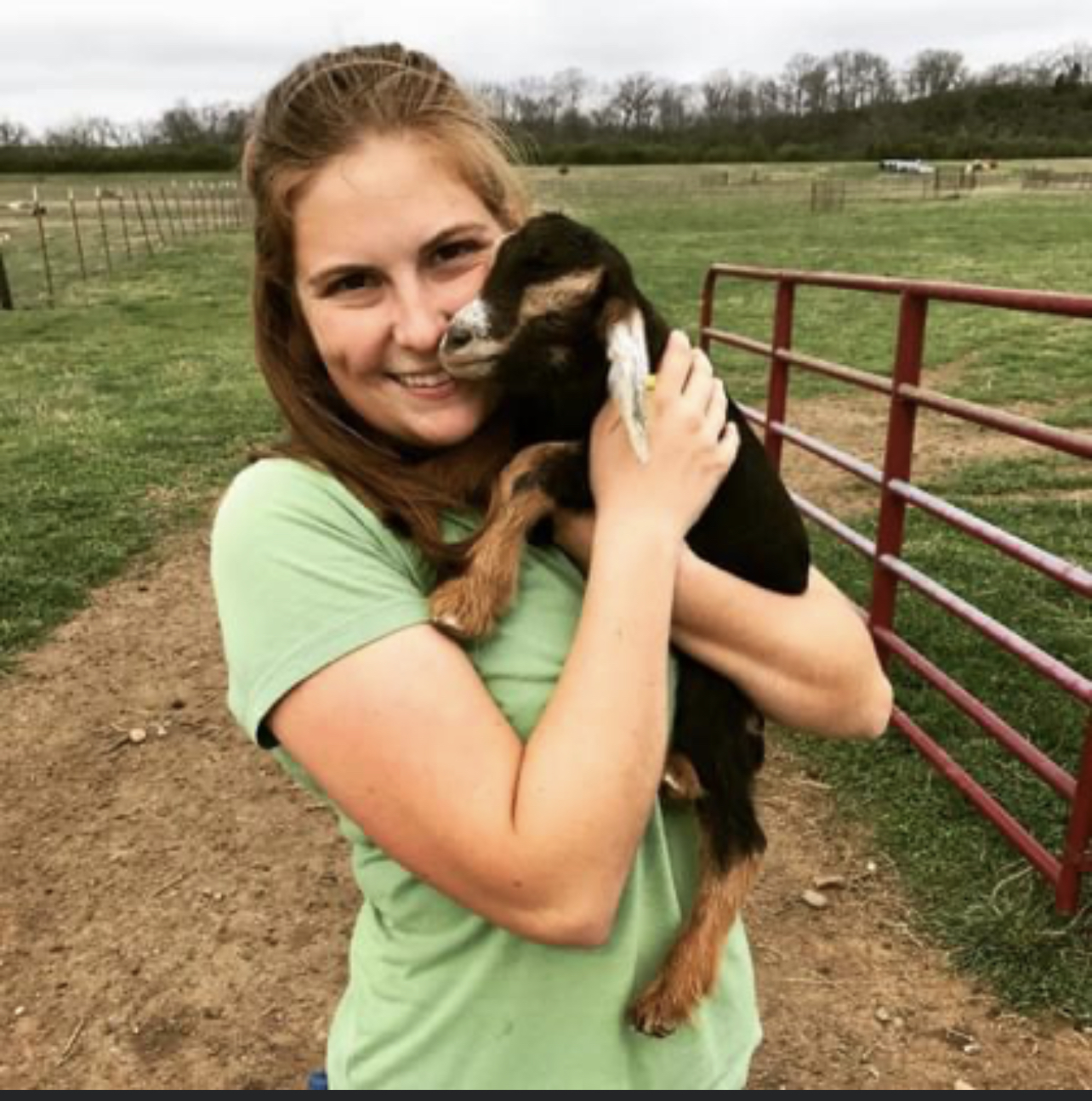
Emily Hayes is a research associate at Tennessee State University in the program of Animal Science Professor Richard Browning Jr., where she analyzes performance traits in goats raised for meat and studies heat-tolerant genetics in small-framed cattle. Although not from a traditional farming background, she discovered a passion for working with livestock in high school. Emily holds a bachelor’s degree in agriculture from the University of Tennessee Martin and a master’s degree in animal science from TSU. She has worked with Spanish and Myotonic goats as well as Dexter cattle for many years and said she thoroughly enjoys assisting livestock producers through university extension programs. “I’m proud to be part of the work The Livestock Conservancy does in protecting endangered breeds and hope to encourage farmers to raise Conservation Priority List breeds for many years to come,” she said.
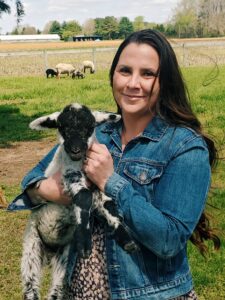
Laura Marie Kramer “LM” is the Director of National Accounts for Standlee, a 3rd generation forage farm located in Southern Idaho. She manages the baled division of the company along with the National Accounts. She has a passion for forage production and matching the right hay with the right livestock producer. Her background is in Ruminate Nutrition with 2 decades of experience working with farmers. She is a graduate of Texas A & M University, and she did her postgraduate work at Texas Tech. LM grew up on a family farm in rural Maryland raising Jersey dairy cattle. She founded La Bella Farm in Georgetown, Delaware in 2009 where she raises Hog Island Sheep, she was introduced to the breed by a staff member at The Livestock Conservancy. An avid horsewoman LM spends her free time riding her two draft horses and competing in Eventing.
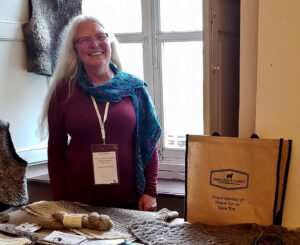 Marie Minnich is a physician, practicing in the field of Anesthesiology for more than 30 years. She received her BS in Biology from the University of Scranton after which she attended the Penn State University School of Medicine in Hershey, PA receiving her MD in 1980. She completed her residency in Anesthesiology at Vanderbilt University and a fellowship in Obstetric Anesthesia at the University of Arkansas. She completed a Masters in Medical Management at Carnegie Mellon and an MBA at the University of Massachusetts-Amherst. Marie grew up on a diversified family farm in northeastern Pennsylvania and became interested in fiber arts at a very early age. While learning to spin in 2007, Marie was introduced to the wonderful wool produced by the heritage Romeldale CVM sheep. This ultimately led to her decision to return to her farming roots. After acquiring their farm in early 2008, Marie started with a small flock of 15 sheep in December of that year. This is now the largest registered flock of Romeldale CVMs in the country. She has served as the Treasurer of the National Romeldale CVM Conservancy, Inc. since 2010. Marie currently resides in Danville, PA with her husband, 9 dogs, and 300+ sheep.
Marie Minnich is a physician, practicing in the field of Anesthesiology for more than 30 years. She received her BS in Biology from the University of Scranton after which she attended the Penn State University School of Medicine in Hershey, PA receiving her MD in 1980. She completed her residency in Anesthesiology at Vanderbilt University and a fellowship in Obstetric Anesthesia at the University of Arkansas. She completed a Masters in Medical Management at Carnegie Mellon and an MBA at the University of Massachusetts-Amherst. Marie grew up on a diversified family farm in northeastern Pennsylvania and became interested in fiber arts at a very early age. While learning to spin in 2007, Marie was introduced to the wonderful wool produced by the heritage Romeldale CVM sheep. This ultimately led to her decision to return to her farming roots. After acquiring their farm in early 2008, Marie started with a small flock of 15 sheep in December of that year. This is now the largest registered flock of Romeldale CVMs in the country. She has served as the Treasurer of the National Romeldale CVM Conservancy, Inc. since 2010. Marie currently resides in Danville, PA with her husband, 9 dogs, and 300+ sheep.
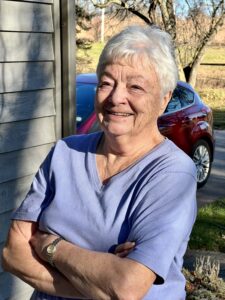 Sandra (Sandy) Nordmark grew up in west-central Michigan, where she spent as much time as she could on neighboring farms and developed a passion for animals, especially horses. Nearby farms allowed her to keep rabbits, chickens and a horse on their premises so that she could join a local 4-H club along with her “horsey” friends. She graduated college with an undergraduate degree in Wildlife Ecology and eventually earned a PhD in Environmental Education & Administration. After gradation she acquired a small farm and was able to expand her single horse stable to a small group of Arabian part-breds and then added a pony so her family could follow the local show circuit and also do some trail riding and hill-topping with an area hunt club. After her kids left for college, she traded her university teaching and community advocacy efforts for governmental service and spent 30 years in administrative roles in public policy and strategic planning; grant writing and management of various nonprofits, agencies and tribal communities; and rural economic development. A small feeder cattle operation established on a second and larger farm some years before gave way to a commercial enterprise raising vegetables, herbs and edible flowers for the restaurant trade, which eventually led to her appointment to an advisory committee to the USDA and the Office of the US Trade Representative for international trade in horticulture in Washington, D.C. Her diverse background and varied lifestyle interests attracted her immediately to The Livestock Conservancy some years after she became aware of their work while visiting their exhibit at an agricultural exposition and meeting Dr. Don Bixby, an enthusiastic promoter of heritage breeds. The importance of protecting and enhancing the populations of heritage breeds of livestock and poultry such that priceless, irreplaceable genetics achieve and maintain sustainable levels easily became her “Next Best Thing!” and she joined and has continued to support their programs.
Sandra (Sandy) Nordmark grew up in west-central Michigan, where she spent as much time as she could on neighboring farms and developed a passion for animals, especially horses. Nearby farms allowed her to keep rabbits, chickens and a horse on their premises so that she could join a local 4-H club along with her “horsey” friends. She graduated college with an undergraduate degree in Wildlife Ecology and eventually earned a PhD in Environmental Education & Administration. After gradation she acquired a small farm and was able to expand her single horse stable to a small group of Arabian part-breds and then added a pony so her family could follow the local show circuit and also do some trail riding and hill-topping with an area hunt club. After her kids left for college, she traded her university teaching and community advocacy efforts for governmental service and spent 30 years in administrative roles in public policy and strategic planning; grant writing and management of various nonprofits, agencies and tribal communities; and rural economic development. A small feeder cattle operation established on a second and larger farm some years before gave way to a commercial enterprise raising vegetables, herbs and edible flowers for the restaurant trade, which eventually led to her appointment to an advisory committee to the USDA and the Office of the US Trade Representative for international trade in horticulture in Washington, D.C. Her diverse background and varied lifestyle interests attracted her immediately to The Livestock Conservancy some years after she became aware of their work while visiting their exhibit at an agricultural exposition and meeting Dr. Don Bixby, an enthusiastic promoter of heritage breeds. The importance of protecting and enhancing the populations of heritage breeds of livestock and poultry such that priceless, irreplaceable genetics achieve and maintain sustainable levels easily became her “Next Best Thing!” and she joined and has continued to support their programs.
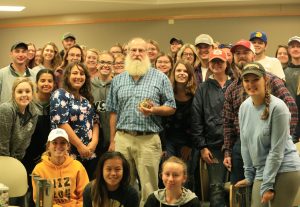 Tim Safranski grew up in the Columbia River gorge in Oregon on a small, diversified, livestock farm which provided him a unique perspective. A career in the animal industry was the goal, and hogs – Hereford Hogs among them – helped show him paths in that direction.Tim completed his Bachelor of Science degree at Oregon State University (while living in the sheep barn) and then made his way to the Midwest. He earned his Master of Science and Doctor of Philosophy degrees at the University of Missouri, then spent a couple years working for USDA-ARS in Clay Center Nebraska. In January 1996, Tim returned to Missouri, where he has served as the State Swine Breeding Specialist. Since returning to Missouri, he has led an integrated extension and research program in the areas of genetics, genetic conservation, and reproductive management in addition to teaching the Swine Production class at MU. He has presented in 25 states and on five continents on topics of swine genetics, reproduction, and management. He currently serves as Professor of Animal Science and State Swine Extension Specialist. Tim, his wife and four sons raise crossbred cattle, Katahdin sheep, American and Silver Fox rabbits, Bourbon Red turkeys, and various chicken breeds on 91 acres in Callaway County, Missouri.
Tim Safranski grew up in the Columbia River gorge in Oregon on a small, diversified, livestock farm which provided him a unique perspective. A career in the animal industry was the goal, and hogs – Hereford Hogs among them – helped show him paths in that direction.Tim completed his Bachelor of Science degree at Oregon State University (while living in the sheep barn) and then made his way to the Midwest. He earned his Master of Science and Doctor of Philosophy degrees at the University of Missouri, then spent a couple years working for USDA-ARS in Clay Center Nebraska. In January 1996, Tim returned to Missouri, where he has served as the State Swine Breeding Specialist. Since returning to Missouri, he has led an integrated extension and research program in the areas of genetics, genetic conservation, and reproductive management in addition to teaching the Swine Production class at MU. He has presented in 25 states and on five continents on topics of swine genetics, reproduction, and management. He currently serves as Professor of Animal Science and State Swine Extension Specialist. Tim, his wife and four sons raise crossbred cattle, Katahdin sheep, American and Silver Fox rabbits, Bourbon Red turkeys, and various chicken breeds on 91 acres in Callaway County, Missouri.
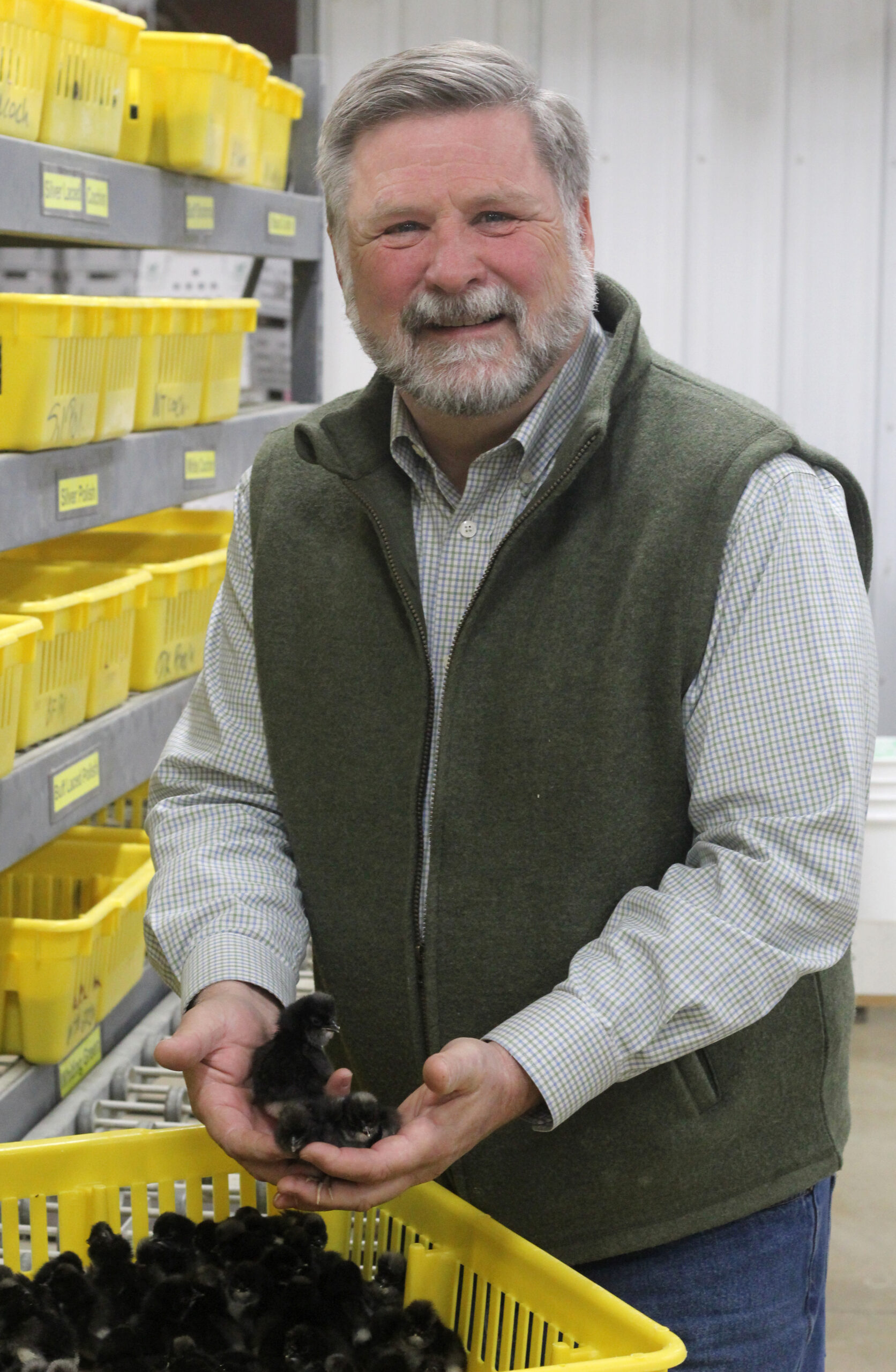 Bud Wood is the owner and CEO of Murray McMurray Hatchery in Webster City, Iowa. Since 1917, McMurray Hatchery has remained dedicated to preserving rare and exotic poultry breeds, and working in partnership with The Livestock Conservancy is a critical component of that mission. For more than a century, the hatchery has maintained the genetic lines of many critically endangered poultry breeds and is continuing to add more. Today the hatchery carries nearly 75% of the breeds on the Conservation Priority List. Bud entered the poultry industry in the 1980s as a contract programmer for the hatchery. He joined the company as a partner in 2001. He served as president of the company and Chairman of the Bird Shippers of America, a consortium of mail-order hatcheries. Bud managed the company through many industry challenges, including the 9/11 shipping moratorium and airmail crisis, an avian influenza epidemic, and the current COVID-19 pandemic. Recently, Bud stepped down as president and passed the baton to his son-in-law, Tom Watkins. While still active within the hatchery, he is enjoying a slower pace, with time to work with civic, church, and industry organizations. He is also enjoying having more time for family, hobbies, and friends.
Bud Wood is the owner and CEO of Murray McMurray Hatchery in Webster City, Iowa. Since 1917, McMurray Hatchery has remained dedicated to preserving rare and exotic poultry breeds, and working in partnership with The Livestock Conservancy is a critical component of that mission. For more than a century, the hatchery has maintained the genetic lines of many critically endangered poultry breeds and is continuing to add more. Today the hatchery carries nearly 75% of the breeds on the Conservation Priority List. Bud entered the poultry industry in the 1980s as a contract programmer for the hatchery. He joined the company as a partner in 2001. He served as president of the company and Chairman of the Bird Shippers of America, a consortium of mail-order hatcheries. Bud managed the company through many industry challenges, including the 9/11 shipping moratorium and airmail crisis, an avian influenza epidemic, and the current COVID-19 pandemic. Recently, Bud stepped down as president and passed the baton to his son-in-law, Tom Watkins. While still active within the hatchery, he is enjoying a slower pace, with time to work with civic, church, and industry organizations. He is also enjoying having more time for family, hobbies, and friends.
AMBASSADORS
Wendell Berry has been a member of the Conservancy since 1986 and raises sheep and horses. He is an American novelist, poet, environmental activist, cultural critic, and farmer. According to him, the good life includes: sustainable agriculture, appropriate technologies, healthy rural communities, connection to place, the pleasures of good food, husbandry, good work, local economics, the miracle of life, fidelity, frugality, reverence, and the interconnectedness of life.
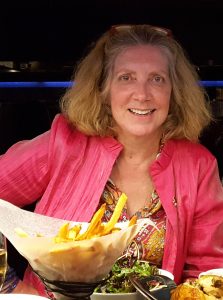 Ariane Daguin is the founder of D’Artagnan, the “leading purveyor of organic poultry, game, foie gras, pâtés, sausages, smoked delicacies, and wild mushrooms to the nation.” She is on the board of City Harvest, and active in The American Institute of Wine & Food and Women Chefs and Restaurateurs. Recognized in 1994 by The James Beard Foundation “Who’s Who of Food and Beverage in America,” Ariane is now a member of the Awards Committee. In 2005, Ariane received the “Lifetime Achievement Award” from Bon Appetit Magazine, and in September 2006, she was awarded the French Legion d’Honneur. She is founding president of Les Nouvelles Mères Cuisinières, an international association of prestigious women chefs. She delivered the keynote address at the Conservancy’s 2013 conference in North Carolina.
Ariane Daguin is the founder of D’Artagnan, the “leading purveyor of organic poultry, game, foie gras, pâtés, sausages, smoked delicacies, and wild mushrooms to the nation.” She is on the board of City Harvest, and active in The American Institute of Wine & Food and Women Chefs and Restaurateurs. Recognized in 1994 by The James Beard Foundation “Who’s Who of Food and Beverage in America,” Ariane is now a member of the Awards Committee. In 2005, Ariane received the “Lifetime Achievement Award” from Bon Appetit Magazine, and in September 2006, she was awarded the French Legion d’Honneur. She is founding president of Les Nouvelles Mères Cuisinières, an international association of prestigious women chefs. She delivered the keynote address at the Conservancy’s 2013 conference in North Carolina.
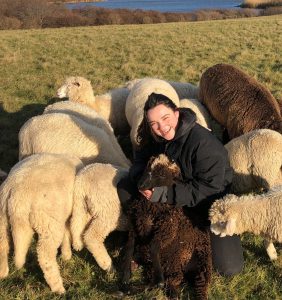 Katya Ekimian is a young knitwear designer who focuses on wool, specifically those from heritage breeds of sheep. Her interest in the fiber lead her to find work on a wool farm where she was exposed to every step of the process from caring for and shearing sheep to knitting the finished spun product. Ekimian was awarded the 2019 Woolmark Scholarship.
Katya Ekimian is a young knitwear designer who focuses on wool, specifically those from heritage breeds of sheep. Her interest in the fiber lead her to find work on a wool farm where she was exposed to every step of the process from caring for and shearing sheep to knitting the finished spun product. Ekimian was awarded the 2019 Woolmark Scholarship.
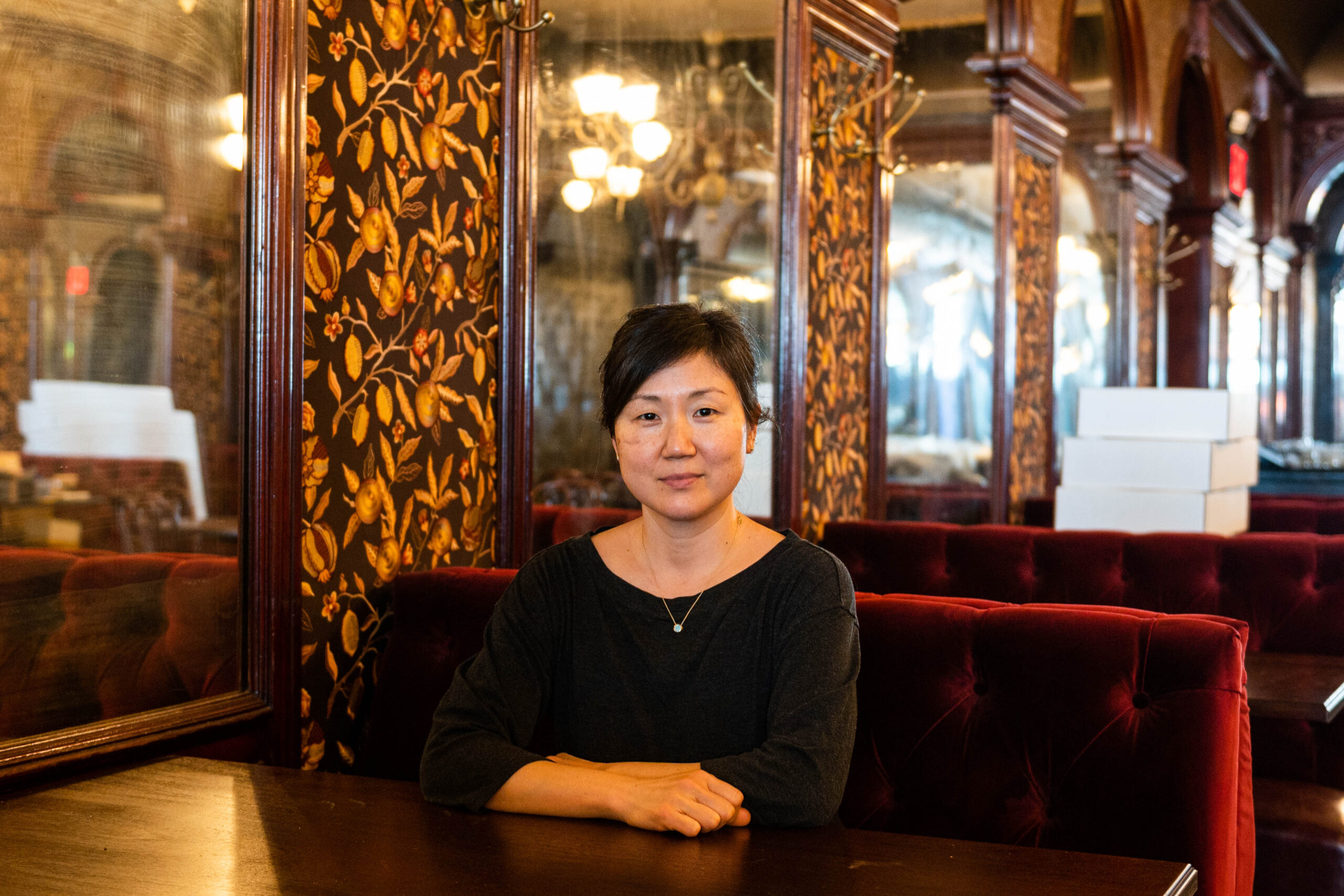 Sohui Kim is a classically-trained chef, restaurateur, and celebrated cookbook author. Born in Seoul, Korea, Sohui honed her culinary skills under several lauded chefs, including Dan Barber and Michael Anthony at Blue Hill, Peter Hoffman at Savoy, and Anita Lo at her Michelin-starred restaurant Annisa. As chef/partner of Gage & Tollner, the award-winning historic oyster and chop she reopened in Downtown Brooklyn in April 2021, the restaurant marks the third and largest endeavor in Sohui’s collection of beloved Brooklyn eateries. In 2006, she and her husband/business partner Ben Schneider opened The Good Fork in Red Hook—a Michelin Bib Gourmand restaurant serving seasonally-inspired global comfort food—which they reopened as The Good Fork Pub in July 2022. And in 2015, the couple opened Korean BBQ and karaoke hotspot Insa in Gowanus, which went on to receive a glowing two-star review from the New York Times and earned her a nomination for the James Beard Foundation’s prestigious Best Chef: NYC award in 2019.
Sohui Kim is a classically-trained chef, restaurateur, and celebrated cookbook author. Born in Seoul, Korea, Sohui honed her culinary skills under several lauded chefs, including Dan Barber and Michael Anthony at Blue Hill, Peter Hoffman at Savoy, and Anita Lo at her Michelin-starred restaurant Annisa. As chef/partner of Gage & Tollner, the award-winning historic oyster and chop she reopened in Downtown Brooklyn in April 2021, the restaurant marks the third and largest endeavor in Sohui’s collection of beloved Brooklyn eateries. In 2006, she and her husband/business partner Ben Schneider opened The Good Fork in Red Hook—a Michelin Bib Gourmand restaurant serving seasonally-inspired global comfort food—which they reopened as The Good Fork Pub in July 2022. And in 2015, the couple opened Korean BBQ and karaoke hotspot Insa in Gowanus, which went on to receive a glowing two-star review from the New York Times and earned her a nomination for the James Beard Foundation’s prestigious Best Chef: NYC award in 2019.
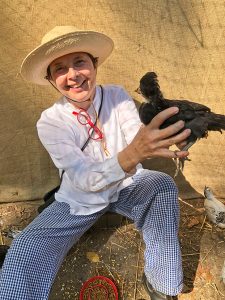 Isabella Rosselini is best known as an actress and model, but she also lives on a farm on Long Island and raises goats, sheep, pigs, & Heritage chickens, grows organic vegetables, and produces honey and eggs. She recently published a children’s book My Chickens and I, describing her chickens to young readers and completed a Master’s degree in Animal Behavior and Conservation. Local school groups sometimes visit the farm, where Isabella teaches them about the animals.
Isabella Rosselini is best known as an actress and model, but she also lives on a farm on Long Island and raises goats, sheep, pigs, & Heritage chickens, grows organic vegetables, and produces honey and eggs. She recently published a children’s book My Chickens and I, describing her chickens to young readers and completed a Master’s degree in Animal Behavior and Conservation. Local school groups sometimes visit the farm, where Isabella teaches them about the animals.
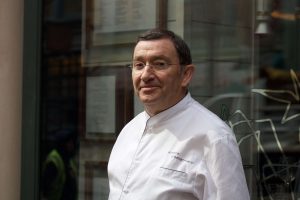 Antoine Westermann is an acclaimed French chef, who maintained a three-star Michelin rating at his Le Buerehiesel restaurant for over 31 years, before asking for them to be removed. He currently owns and operates the restaurant “Le Coq Rico” in Paris and opened a second location in New York City in 2016, which focuses on highlighting the flavor diversity of oft-overlooked heritage breeds of poultry through simple dishes, expertly prepared.
Antoine Westermann is an acclaimed French chef, who maintained a three-star Michelin rating at his Le Buerehiesel restaurant for over 31 years, before asking for them to be removed. He currently owns and operates the restaurant “Le Coq Rico” in Paris and opened a second location in New York City in 2016, which focuses on highlighting the flavor diversity of oft-overlooked heritage breeds of poultry through simple dishes, expertly prepared.


